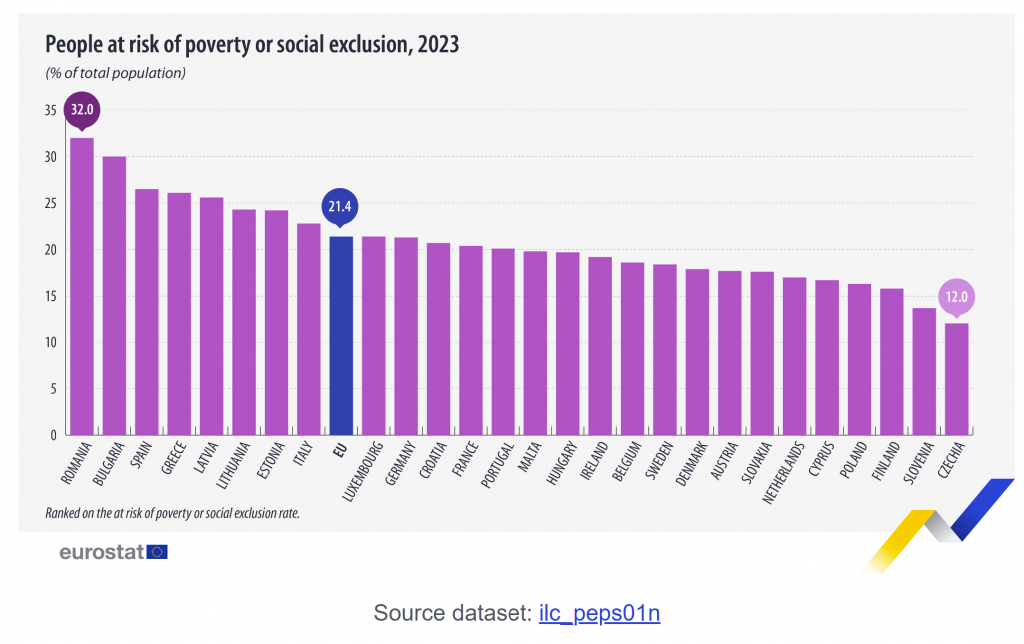Citizens of Greece have the 4th highest risk of poverty or social exclusion in the European Union (EU), according to a new report released by Eurostat compiling data from 2023.
Specifically, 26% of Greeks are at risk, which is above the EU average of 21.4% and just below that of Romania (32%), Bulgaria (30%) and Spain (27%).

ELSTAT had released the figures about Greece through a report in April, but this new data by Eurostat reveals Greece’s ranking among other EU countries.
EU citizens from the following countries have the lowest risk of poverty or social exclusion: Czechia (12%), Slovenia (14%), Finland and Poland (16%).
Eurostat defines “people at risk of poverty” as those living in households with at least one of the following three poverty and social exclusion risks: risk of poverty, severe material and social deprivation, and/or living in a household with very low work intensity.
On an EU level, the 2023 figures are a slight improvement from 2022 regarding poverty in Greece, when 22% of the population of the EU was considered to be at risk of poverty or social exclusion.
Meanwhile, according to a recent Eurostat study Greece ranks among the European countries included in the second “cheapest” tier in the EU27, placing it significantly lower (23rd) than the bloc’s average of 24 euros per hour, in terms of hourly labor cost.




